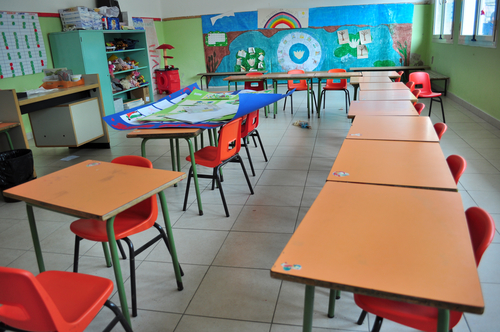
4 Helpful Back to School Tips for Teachers
 As a former public school teacher, I can attest to the intensity of the excitement and stress that Back-to-School brings for everyone in a school community. For teachers, from setting up your classroom to meeting parents to building a classroom community and beginning a curriculum on the right foot, it’s a lot to take on. Hats off to all the teachers out there, and here are a few tips on making those first few weeks work for you.
As a former public school teacher, I can attest to the intensity of the excitement and stress that Back-to-School brings for everyone in a school community. For teachers, from setting up your classroom to meeting parents to building a classroom community and beginning a curriculum on the right foot, it’s a lot to take on. Hats off to all the teachers out there, and here are a few tips on making those first few weeks work for you.
1. Practice Self Care: This tip has to go first because it is the most important. If you remember this, you will have more strength, stamina, and peace of mind to carry out the many various other tasks that will come up as the new school year starts. Plan breaks, “you time,” and enjoyable activities into your first month of school so that if and when you get overwhelmed, you have a place and time to refresh yourself already set up. Adjust your plans as needed along the way. Don’t expect to be perfect, take deep breaths, and say no to requests for your time that do not work for you whenever you can. As Mary Ellen Flannery of the National Education Association (NEA) says,
“Keep this in mind: A stressed-out, exhausted teacher is not an effective one. For the sake of your health and your students’ performance, you should take steps to reduce stress.”
How you reduce stress will be personal and unique, but exercise, sleep, and recreation/ fun are usually safe bets. As much as every child in your room matters, you matter too!
2. Set Up Your Room to Match Your Learning Goals: For example, if your students are going to participate in two to five types of learning activities in a period, day, or year, do your best to reflect that in the room set-up. Having separate spaces for them to read quietly, use technology, and move around is preferable. Make sure supplies are easy to find and that directions for student-led activities are accessible too. Make sure you like the set-up and that you have a comfortable area that is reserved for you, too, as you are going to be spending more time there than anyone else! Edutopia recommends you have seven learning zones in your classroom: the Discovery Zone, News Zone, Supplies Zone, Community Zone, Quiet Zone, Teacher Zone, and Subject Zone.
At the beginning of the year, try to make the room engaging, comfortable, and welcoming. Consider the lighting and temperature (and whether you have any control over them) and make sure your room is both safe and accessible to those who are differently abled. The mood and décor of your classroom can change throughout the year to reflect your students’ identities and what they are learning. Visit the rooms of other teaches on your team or hall to see what great ideas they are incorporating and how different each room feels and looks. As well as setting up a place to display student work, it’s also a good idea to dedicate some wall space for the students to take ownership of and utilize in a way that they see fit (with your approval).This helps the students to feel invested in and responsible for the classroom too. Scholastic.com even offers an online Class Set-up Tool if you’re someone who likes to think visually and with on-screen technology.
3. Look Back: Whether you’ve just finished your student teaching or you have a good number of professional teaching years under your belt, you’ve no doubt worked hard to get to the first day of school. Take some time to congratulate yourself for that, and to appreciate your successes and strengths. Also recognize what has challenged you as a teacher the most in the past, and reflect on those powerful experiences as potential growth opportunities, because it is likely that they will arise again. By imagining future successes and drawing on your growing knowledge and valuable past experiences, you can set goals for how you hope to handle future difficulties, what you hope to achieve in each quarter and by the end of the year, and how you want your classroom community to function and feel.
4. Start Anew: As much as learning from the past and setting goals can help you to organize and motivate yourself, it’s also important to start each school year with an open mind and heart. The children deserve this from you in particular. Other adults who know or have previously taught the children as well as specialists and therapists can give you invaluable support, especially with children who may have special needs, abilities, and gifts. That being said, it is also your job to see the children with open and fresh eyes. You may see a spark or potential in them that others did not. Give yourself the opportunity to start over too—who you are as a person and a teacher will constantly evolve and change. Give yourself permission to grow and be surprised, both by your kids and by yourself. Having a sense of humor doesn’t hurt, either. As Keith Lambert of Education World writes, “[c]elebrate what we do, because although the world can feel like a tough place … you’re helping.”
A final note for any first year teachers out there: you are going through a unique and life-changing experience, and it’s typically going to ask quite a lot of you. Remember that you are supposed to be learning as you go, and that you are evolving every day. Do practice self-care and rely on the mentorships and other human-to-human support around you in your personal and professional life. Teachers who stay in the profession for years are still constantly learning, so you’re in good company. Good luck!
Written by Julia Travers



